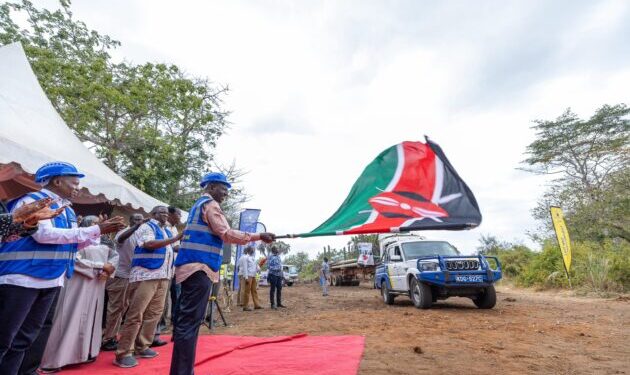The recently launched Last Mile Connectivity Project in Kwale County is set to transform lives, accelerate economic growth, and bridge the development gap between rural and urban communities. With an investment of Sh1.4 billion, this initiative will connect over 12,700 households to the national electricity grid, ushering in a new era of progress and opportunity for the region.
Electricity is a fundamental driver of development, and this project represents a monumental step toward achieving Kenya’s goal of universal access to power by 2030. By providing thousands of households with reliable electricity, the project is unlocking new avenues for wealth creation, employment, and improved living standards across Kwale County.
One of the most significant economic benefits of this initiative is its potential to revolutionize agribusiness and the blue economy. With access to electricity, farmers can adopt modern irrigation systems, increase productivity, and reduce post-harvest losses through refrigeration. Likewise, the fishing industry—a backbone of the coastal economy—will benefit from improved storage and processing capabilities, ensuring higher incomes for local fishermen and traders.
The impact on local enterprises will be equally profound. Small and medium-sized businesses will now have the power to expand operations, leverage digital tools, and explore new markets. From barbershops and tailoring businesses to welding workshops and internet cafes, increased access to electricity will foster innovation and entrepreneurship, enabling communities to thrive.
Beyond economic benefits, the project will also enhance the quality of essential services. In education, electrified schools will provide students with a better learning environment, enabling the use of digital resources and extended study hours. Healthcare facilities will have the capacity to operate lifesaving equipment, store vaccines efficiently, and offer improved medical care. Moreover, electrified streets and homes will enhance security, fostering safer neighborhoods for residents.
President William Ruto, while commissioning the project at Kiwegu Secondary School, reaffirmed the government’s commitment to ensuring rural electrification as a catalyst for national development. He emphasized that electricity access is not just about lighting homes but about empowering communities to reach their full potential.
Governor Fatuma Achani echoed this sentiment, highlighting the project’s role in driving inclusive development in Kwale. She underscored the importance of leveraging electricity for productive use and called on residents to protect the infrastructure from vandalism to sustain long-term benefits.
The Last Mile Connectivity Project is more than an infrastructure initiative; it is a transformative force that will redefine the socio-economic landscape of Kwale County. By fostering business growth, improving service delivery, and enhancing overall quality of life, this project positions Kwale as a beacon of progress and prosperity. As implementation unfolds, the county stands on the cusp of unprecedented development, with electricity serving as the engine of its bright future.










